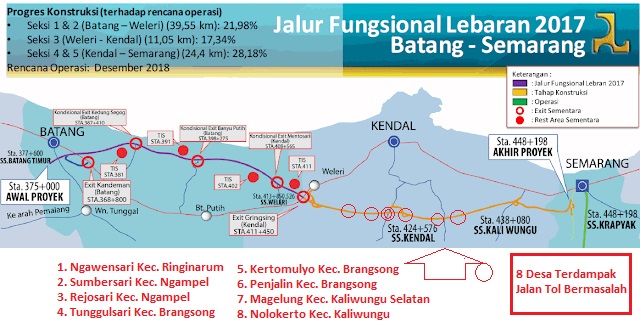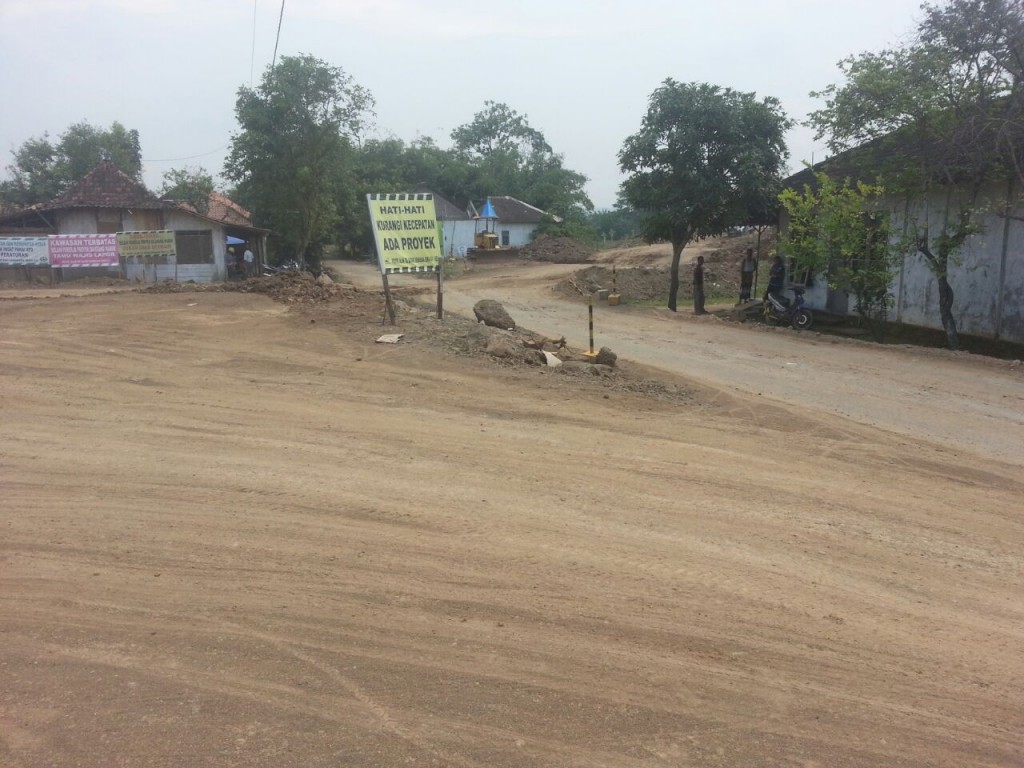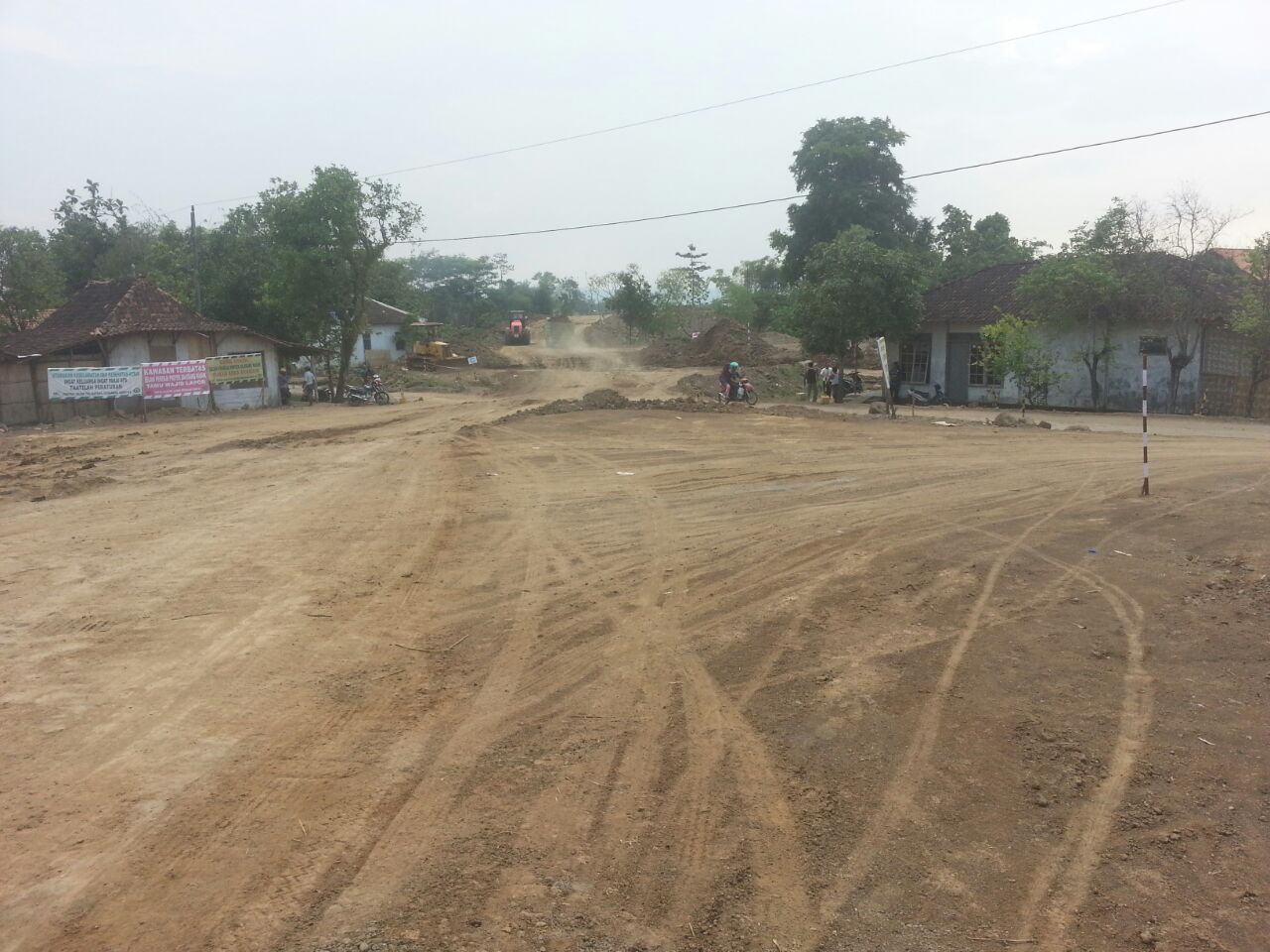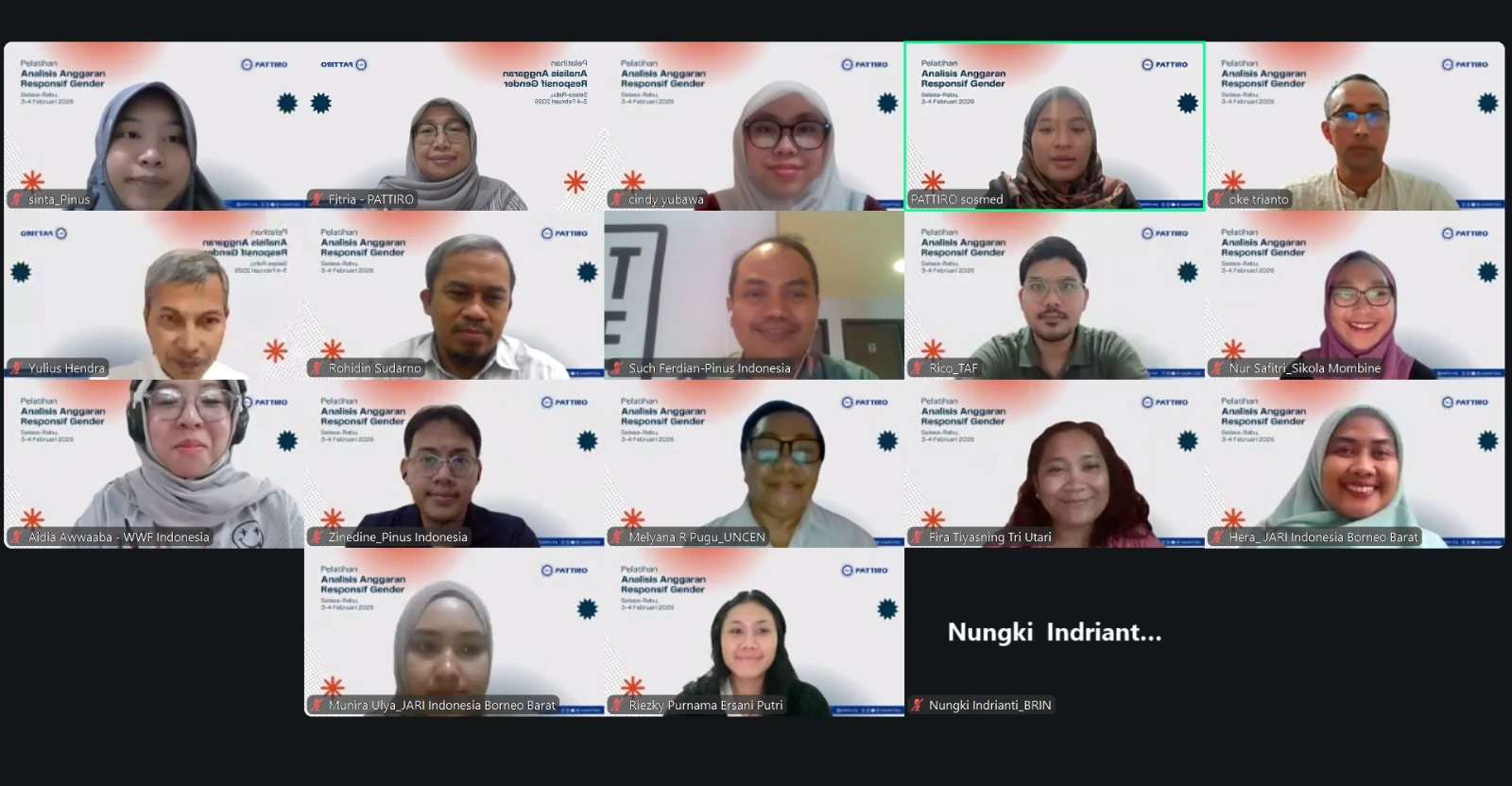
The 2018 Ied al-Fitr holidays is approaching in two months’ time, yet the process of completion of compensation for land used for the construction of Batang-Semarang Phase III toll road has not reached an agreement between the affected citizens and the Government (represented by the National Land Agency/BPN and the District Court). The eviction process, scheduled to take place on April 20-23, 2018, created confusion and anxiety for the residents. The inability to reach an agreement was because the residents felt that the implementation of compensation by the government has ignored the humanitarian, democratic and fairness principles. The land acquisition process was considered to have administrative errors that tend to harm the residents.
Although residents strongly support the development program being run by the government, according to Ahmad Hasan, a resident of Nolokerto village, so far the government had not carried out the stages in the land procurement process, as regulated in the Law. For example, in the matter of determining compensation for objects, the BPN did so without a process of deliberation with citizens. This is certainly not in line with the principles of procurement in Law No. 2 of 2012, namely humanity, justice, benefit, certainty, openness, agreement, participation, welfare, sustainability, and harmony.

So far, the residents had made efforts of dialogue with the Ministry of Land and Spatial Planning/BPR RI, the Ministry of Public Works and Public Housing, Commission V of the House of Representatives, Deputy II of the Presidential Staff Office, Ombudsman, Komnas HAM and Komnas Perempuan to address the issues they experienced. The residents hoped that the government would not carry out evictions by coercive methods. According to the Chairman of Kendal Farmers Union Branch, Nurrokhim “all residents strongly support the construction of the toll road, it’s just that the people ask the government to implement the process/stage according to regulations. The decision that came out should have been based on agreement between the government and the citizens, not a one-sided decision (government only),” said Nurrokhim.
Nurrokhim asserted that “The nominative data on the size of plots, buildings, crops and businesses are not in accordance with the conditions in the field. Appraisal of the objects undertaken by the National Land Agency (BPN) of Kendal used data from 2000-2012. This condition is of course not in line with the principles adopted in Law No. 2 of 2012. Some objects of compensation, such as plots, buildings, crops and the business value, are not calculated according to the actual conditions, and the determination of the value are not fair,” added Nurrokhim.
Infrastructure projects often focus on technical issues and expectations of development outcomes but ignore the social impact of development. The construction of the Batang-Semarang Phase III toll road has ignored the universal principles in the process of state land acquisition as mandated by Law No. 2 of 2012. PATTIRO Executive Director Maya Rostanty explained that the process of building toll roads by the government, should be in accordance with regulations, and pay attention to affected vulnerable groups, to ensure that no citizens are harmed. Such attention to the groups is not only done after the implementation of development, but it is also important before the implementation of development (i.e. during the process of land acquisition). Because if this is not considered, it will affect the social and economic conditions of citizens.
According to Maya, the construction of the Batang-Semarang Phase III toll road has ignored the concepts of gender-responsive and inclusive development, as there are 9 villages from 5 districts experiencing land acquisitions that still expect fair and reasonable compensation. The number of affected persons is 778 inhabitants, consisting of 283 adult males, 267 adult females, 224 children aged between 0-18 years (120 boys and 104 girls). In addition there are 19 female heads of households and 6 elderly persons. Of these, 2/3 are classified as vulnerable groups.
“PATTIRO is concerned that the goal of national development to improve the welfare of the people is tarnished by the harmful land procurement process making the community less prosperous, because it ignored the principle of justice. Fair development should be ensured by the government, not just jargon, to ensure that all vulnerable and difable marginalized groups are fulfilled in their rights either before or after the development process,” she added. “The government must abandon the old ways of land acquisition; Law No.2 of 2012 has provided direction in carrying out the land acquisition process for the public interest and should be a guide for citizens to receive fair and equitable compensation.” Maya concluded.
Contacts:
Ahmad Hasan, Villager of Nolokerto (0823 7743 9142)
Nurrahim, Chairman of SPI Kendal (0852 2512 0832)
A. Salim, PATTIRO (0878 0677 5485)





